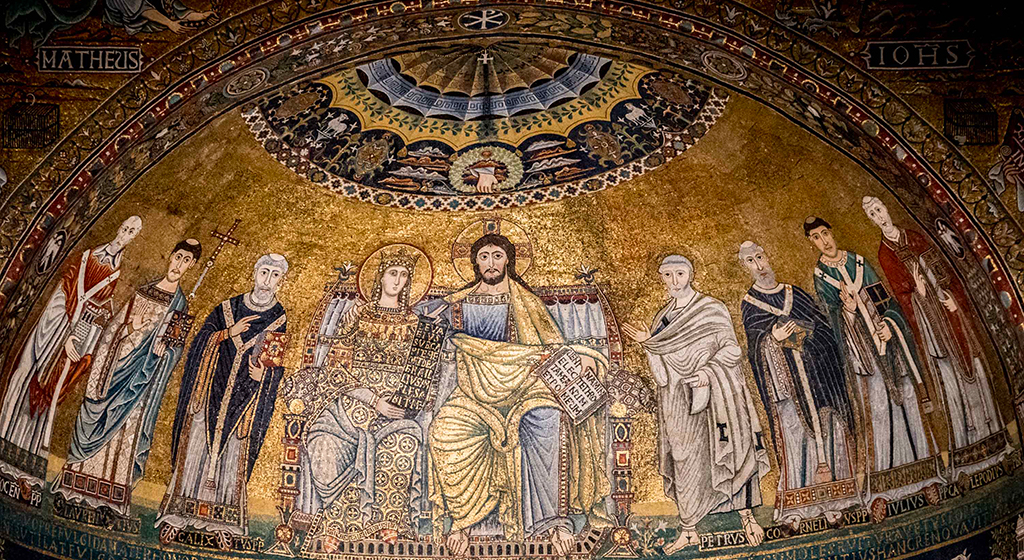Memory of the Church
Reading of the Word of God
Alleluia, alleluia, alleluia
I am the good shepherd,
my sheep listen to my voice,
and they become
one flock and one fold.
.
Alleluia, alleluia, alleluia
Isaiah 26,1-6
That day, this song will be sung in Judah: 'We have a fortress city, the walls and ramparts provide safety. Open the gates! Let the upright nation come in, the nation that keeps faith! This is the plan decreed: you will guarantee peace, the peace entrusted to you. Trust in Yahweh for ever, for Yahweh is a rock for ever. He has brought low the dwellers on the heights, the lofty citadel; he lays it low, brings it to the ground, flings it down in the dust. It will be trodden under foot, by the feet of the needy, the steps of the weak.'
Alleluia, alleluia, alleluia
I give you a new commandment,
that you love one another.
Alleluia, alleluia, alleluia
This passage is a hymn of praise and thanksgiving to the Lord. There are two reasons for this joy and gratitude: the destruction of the "lofty city," Babylon, a symbol of the pride and arrogance of the powerful who crush the weak and the poor, and the construction of a "strong city," Jerusalem, which welcomes the people who have been faithful to the Lord. The city built by God has solid, impregnable walls. This is why believers are urged to trust in God, only in Him. This faith of is based God's love, which has never failed. The Prophet recalls this trust before each of us' instinct to trust only ourselves and our certainties, deluding ourselves to defend our existences! It does not help building barriers and walls to prevent the poor to reach us or strengthening our borders to reject those who seek a new future. The prophet raises his voice to the point of singing so that the gates of the city - as well as those of our hearts - may be always open. The insistent call of Pope Francis to go out towards all gathers this biblical prophecy of the gates that are always open, both to let believers out towards all and to let those who are in need enter the city. The city becomes the place where the people of the believers and the numerous people of the poor live together, two peoples that must never divide. Believers and the poor live in this city together; this city, as revelation says, will come from heaven in its fulfilment, but it begins now on earth every time believers and the poor meet and welcome one another. The prophet warns that the Lord, "has brought low the inhabitants of the height; the lofty city he lays low. He lays it low to the ground, casts it to the dust." Distance from the poor is distance from God. The image of a city brought down and cast in the dust is harsh but true; it is painfully actual in many parts of the earth. The prophet exhorts to welcome God's revolution that will open with the birth of His Son Jesus. Mary from Nazareth, who first welcomes the Word that becomes flesh, sings of the reversal of the world's logic: "He has shown strength with his arm; he has scattered the proud in the thoughts of their hearts. He has brought down the powerful from their thrones, and lifted up the lowly" (Lk 1:51-52).
